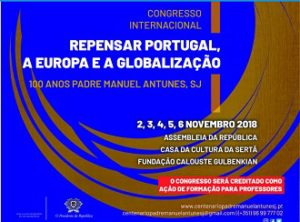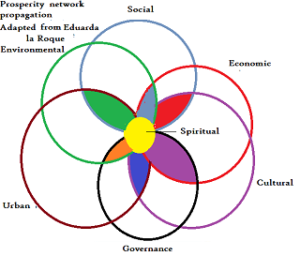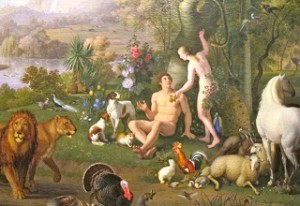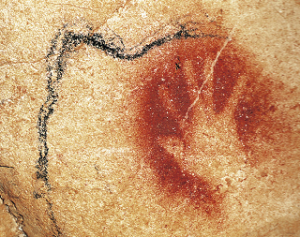
Arquivo para a ‘on-line libraries sharing’ Categoria
Three books (or 4)to read in 2021
I always propose to read some books in the year that begins,  differently this year I feel more stimulated by the romance-fiction that inspired the film “O midnight sky” the book that is being translated into Portuguese by Lily Brooks -Dalton, is a reinterpretation of a collapsed land that has already appeared in other fictions such as Interstellar (2014), Gravity (2014) and the epic Blade Runner 2049 (2017) and Ad Astra (2019).
differently this year I feel more stimulated by the romance-fiction that inspired the film “O midnight sky” the book that is being translated into Portuguese by Lily Brooks -Dalton, is a reinterpretation of a collapsed land that has already appeared in other fictions such as Interstellar (2014), Gravity (2014) and the epic Blade Runner 2049 (2017) and Ad Astra (2019).
The second book is “Praise the Earth” by Byung Chul Han, it explores its oriental character almost of love for plants, of care, praise and gratitude, it is a garden that was given to the author for this care, making known another face of a writer, the synthetic and realistic relationship with nature.
He explores the rhythms and relationships of aromas with nature, exploring the subtlety of plants and flowers, which is an invitation to contemplation.
The third book is by Peter Sloterdijk (I already ordered the book) You must change your life, whose edition in Portuguese is from the publisher Relógio d´Água.
Peter Sloterdijk developed a philosophy from the book Rules for the human park, deepened in Critique to Cynical Reason and in the 3 volumes of his spheres (I only read the first, the others do not have a Portuguese version), in which he fights a battle against a failed humanism.
In this work You must change your life (in Germany it was launched in 2009, in Portugal last year) the philosopher takes up the question in which he seeks an anthropology in a non-literary or enlightenment dimension of the context of life, in an interview with Fronteiras do Pensamento, in 2016, stated about his anthropotechnics (the central theme of this book), he defines the human being not as creativity, but as a repetition of creativity.
He said in the interview: “the French word répétition expresses repetition at the same time, putting on stage actions that we have already produced, and the exercise that prepares a performance, a performance. Think of a musical or artistic repetition, making and repeating are terms that in French – unlike what happens in German – converge.
And it is exactly on this convergence that the work of anthropotechnics is concentrated”.
A fourth option is possible, the book of logotherapy by Viktor Frankl The meaning of life, its is widely read in Brazil.
Babette’s feast
Babette´s feast is one of Karen Blixen’s most celebrated tales  (1885–1962), tells the story of two puritanical ladies, daughters of a Protestant pastor, who live a very oppressive life until her father dies, the tale became famous after being filmed by the Danish director, being the first Blixen film to be filmed by the Danish Film Institute , and the first to win an Academy Award for Best Foreign Language Film.
(1885–1962), tells the story of two puritanical ladies, daughters of a Protestant pastor, who live a very oppressive life until her father dies, the tale became famous after being filmed by the Danish director, being the first Blixen film to be filmed by the Danish Film Institute , and the first to win an Academy Award for Best Foreign Language Film.
The script was adapted by Just Betzer, Bo Christensen and Benni Korzen, in it Filippa (Bodil Kjer) and Martine (Birgitte Federspiel) are daughters of the strict Lutheran shepherd, who after his death, appears in the village Babette (Stéphane Audran), a Parisian who offers to be the cook and cleaning lady of the family.
Many years after working in the house, she receives the news that she won a big lottery prize and offers to prepare a French gala dinner in celebration of the pastor’s 100th birthday, the parishioners initially fearful, accept babette’s banquet.
The symbolism of the film is strong, the shades of blue slightly contrasted, are on the border between heaven and earth is almost imperceptible, amid the gray landscape of Denmark, a first image foreshadows a different communion in a place between earthly and heavenly things.
Another aspect of symbology is the fish, very influential in early Christianity, but it is the table that was able to re-connect those people with a true self, and awaken them again a sense for the life they had lost some time ago.
The dance of the participants around the people (photo), also a religious symbology, is a high point of this resumption of meaning of the lives of those people.
What Babette’s art, the food made with love and art, was to create on the table a “kind of loving involvement”, but “in a loving involvement of that noble and romantic category in which the person no longer distinguishes between appetite or satiety, bodily and spiritual!”, as the author of the original play herself describes, Blixen thus expresses the deepest of his expression in this tale.
The golden book
Written in 1962 and considered one of the great novels of the 20th century, the  Golden Book (O Caderno Dourado in Spanish, in the photo), tells the story of Anna Wulf, a writer immersed in a personal crisis who decides to tell her story, from the black book for his literary life when he lived in South Africa, the red book on his left-wing political activism, the yellow his emotional life and the blue his daily life.
Golden Book (O Caderno Dourado in Spanish, in the photo), tells the story of Anna Wulf, a writer immersed in a personal crisis who decides to tell her story, from the black book for his literary life when he lived in South Africa, the red book on his left-wing political activism, the yellow his emotional life and the blue his daily life.
Doris Lessing, who won the Nobel Prize for Literature at the age of 85 (2007) when she expected nothing more, herself made a joke about it, but the recognition was deserved and little is known today of this consequent feminist and who refused to adhere to fashions and conjunctures followed his struggle.
Themes such as friendship, motherhood and sexuality have much deeper tones and outlines in this author, in novels such as “As grandmothers” (2007) where old age is seen in a different light, especially for women, or about politics in its book “The sweetest dream” that she suggests as an autobiographical one, and that reflects deeply on her humanitarian vision.
But if I had to highlight a novel by her, my favorite of the youth “Prisons we choose to live in” (1987), it attacks in a subtle and extraordinary way the question of political rhetoric (or what was decided to be politically correct) where it instigates individuals to come out of social constraints and build a better world, in fact and above everyday fashion.
He does not fail to attack in this novel ignorance and the lack of personal responsibility in the desire for applause and mere repetition of mottos, how current his speech would be, anticipating the times, because it was precisely because of the excess of rhetoric and the absence of concrete acts that we fell into pitfalls and we help contemporary ignorance and demagogy.
His sentence that seems to sum up his thinking was: “I cannot and will not hurt my conscience just to adhere to the fashion of the day”, and he said this not for conservatives, but for the apparently advanced positions of his time that were not directed towards attitudes concrete.
Doll´s house
Written in 1878 and built in 1879, the Norwegian novel by Henrik Ibsen (1828-1906) is one of the first manifestations of the exclusion of women in a dualistic and macho society, made for the theater had its first staging in the Kongelige theater, Copenhagen, Denmark , already in 1879.
in a dualistic and macho society, made for the theater had its first staging in the Kongelige theater, Copenhagen, Denmark , already in 1879.
The romance caused quite a stir at the time, however Ibsen was from a wealthy and respected family in the city of Skien, Norway, and is considered one of the founders of modernism.
The setting is the Christmas season, and the couple Nora and Torvard Helmer are getting ready for the party, and he comments on the expenses of the woman, which she treats with nicknames that reduce her childishness: “lark”, “squirrel” and “ my little girl ”like a bad boy who still knows little about adult life.
In Picture two filme from the 70´s, Jane Fonda and Claire Bloom interpret Nora Helmer.
In the first act a widowed woman Cristina Linde and Dr. Rank arrive, who go to the office to talk to Holmer while Cristina who is a former colleague of Nora’s, talks about the death of the husband of Cristina, Holmer’s former colleague. While Holmer goes to the office with his friend, Nora and colleague Cristina talk about their personal lives.
Nora says that her husband will receive the position of manager in an investment bank and this will bring stability to the family, while Cristina also treats her as a “grown child”.
The doorbell rings again and the maid announces Mr. Krogstad, who comes to talk about business with the bank in Helmer’s new position, Cristina recognizes him as having “business of all kinds”, Dr. Rank leaves the office and comes to the room and also knows Mrs. Linde.
When Nora is alone with Mr. Krogstad who had made him a loan, and Mr. Holmer did not know, about the period when the family was in bad finances, Mr. Krogstad tells him that he knows that her father’s signature as guarantor it was falsified because it was 3 days after his death, and here the novel enters its plot.
Cristina actually had an affair with Mr. Krogstad and she can help Nora, resuming the relationship with Krogstad, he sends the promissory note to Holmer but had already sent a letter saying of the loan that his wife had made with him by forging her father’s signature.
The ending is surprising, Holmer opens Krogstad’s letter that tells the “secret of the loan”, then he receives the promissory note and tears it up, but reconciliation with Nora was already impossible because he had said harsh words about her loan.
And in the end Nora leaves, leaving them with her children, whom he said he had no capacity for and educating them, undoubtedly a shocking novel for the time, and which received harsh criticism.
Priest Manuel Antunes and the State
Before rethinking the state, Antunes departs from Portugal, after delineating  in the first pages the identity and fragilities of the people, without leaving the chauvinism or isolationism that was characteristic of a post-colonial period, says the thinker: “It is easy to on paper dozens and dozens of political parties. It is easy to make ideological proclamations as if they contain the ultimate and ultimate truth. It is easy to point out programs, innumerable and ideal, but that do not bite in the real “(Antunes, 2011, 38), highlights them once and for all.
in the first pages the identity and fragilities of the people, without leaving the chauvinism or isolationism that was characteristic of a post-colonial period, says the thinker: “It is easy to on paper dozens and dozens of political parties. It is easy to make ideological proclamations as if they contain the ultimate and ultimate truth. It is easy to point out programs, innumerable and ideal, but that do not bite in the real “(Antunes, 2011, 38), highlights them once and for all.
It is going to rethink the Portuguese state, as it says “leaving the country we are”, not being possible to put aside: “our most serious problems: the Overseas, the emigration, the multiple delays that affect us in the political, social, economic, scientific, technological and cultural “(ibid., 38), stating that” for fifty years we lived in the hypertrophy of the State “, and this is valid not only in Europe but also in many state models contemporaries.
After parading the functions of the state, it will develop two lines of reflection on two opposing models: “a great line of cleavage rises before us: that separates the monopolist state from the pluralist state” (page 42), in which Brazil will also learn the lesson.
He says of the first: “radically centralizing, bureaucratic, jurisdictional and, at least, totalitarian,” he says of the lesson learned on May 25, that not even his supporters wanted to defend him, it may be said that he was already dead.
The second is: “the second radically decentralizing, taking the nation and society as they are with their inter vivos bodies truly alive, their social strata organizing themselves in the way that suits them and leaving to the free play of the market” , seems better and less bureaucratic, but “between these two extremes lies a wide range in which various combinations are possible” (page 43) is where he develops his ideas.
It will be called “temperate zones” in which “man can build an existence
more in accordance with its nature of being intelligent and free “(idem).
He then asks whether Portugal wants to live in this temperate zone, where the “ideological-affective principle of freedom, equality and fraternity, constantly in a critical review instance in its concrete applications and not reduced to an empty slogan or mere rhetorical discourse without content” which in many places gave rise not only to democratic discredit, but mainly.
Priest Manuel Antunes, if “handy” is universal
The entrance of my study environment in Portugal, I came across a poster that said a conference about Father Manuel Antunes: Portugal, Europe and Globalization, the words were exactly these, but at a glance a book comes to mind Web to understand a little more of Portugal: “Rethinking Portugal” (see the pdf), later I know that there is a book of the publishing house Bertrand with this name, published in 2017.
a conference about Father Manuel Antunes: Portugal, Europe and Globalization, the words were exactly these, but at a glance a book comes to mind Web to understand a little more of Portugal: “Rethinking Portugal” (see the pdf), later I know that there is a book of the publishing house Bertrand with this name, published in 2017.
I also review my preconceptions, of the one that I had of our mother country, not only because they arrived in Brazil, but also because they gave us the imperial rulers, D. João VI who migrated and established the crown there, D. Pedro I Portugal, D. Pedro IV) and his eldest daughter born in São Cristóvão, D. Maria II who gives name to the theater and some places in Portugal.
The initial reading, without any experience in Portugal, was from an isolated country, a little shy, and the text of Father Manuel Antunes confirmed, reads at the beginning of Repensar Portugal: “the possibility of the end of international isolation, that” proudly “which is the very contradiction of the world in which we live” (Antunes, 2011, 35), where he can already read the universal, this original work is from 1979, five years after the Carnation Revolution.
In speaking of the Revolução dos Cravos (Carnation Revolution), which ended the Salazarist era, Father Antunes said: “Carnation of May, the fraternization of the People and the Armed Forces, of collective enthusiasm, of a certain unfeigned brotherhood, of a vast availability to openness, of a sometimes candid and broad, spontaneity ” (ibid., p. 35).
At first religious curiosity moved me, thinking of the sermons of Father António Vieira, but beyond the scholarly thought, it was from this reading that I understood that I should know six essential dates for Portugal, the Carnation Revolution (1974) and: 1385, 1640, 1820 , 1910 and 1926.
At the beginning, in search of a Portuguese identity, without chauvinism, without messianism and without isolationism, he sees it as a “paradoxical living country of the strangest that the memory of men knows” (page 36), with many exceptions: a colonial empire that was so wide (Portugal was the first empire of the modern era of Macao, Goa to Africa and Brazil), except for how it carried out its political revolution (the left as it is normal), it was the armed forces themselves that demolished the State and exile members of outlawed parties.
He asked at the time, paralleling the year of the liberal revolution of 1820 (made by the crown), “Preface to the Constitutional Cortes of the same year. Will it follow 1823? ” (Page 37).
He says in his work that defining a Portuguese identity, after saying that they made several imitations (1820, Spain, 1834, England, 1910 Jacobin France with the Regicide and 1926 fascist Italy), it was with the assassination of the King Carlos I and the heir who became the republic.
But it emphasizes peculiar traits in the Portuguese town: “Mystical people but little metaphysical; lyric but not gregarious people; active but not very organized people; empirical people, but little pragmatic “(idem) and emphasize the most essential feature that differs from all of Europe:” coexistent people, but easily segregable by the arts of those who lead or propose (ibid.), but the privacy reserved as every European is pleasurable and joyful different from all of Europe and part of the world where indifference already prevails.
This Portuguese scholar priest, who died in 1985, did not see Portugal joining the European Community and the crisis that followed, but gave a fundamental sentence: “The lyrical hour is passing.”
Democracy and Information
In the midst of a dramatic picture of Brazilian democracy, the danger of radicalization is visible,  I reopen the book “Politics we also do
I reopen the book “Politics we also do
not know how to do”, it is not deliberately crossed out, which has as coauthors Clovis de Barros Filho, Oswaldo Giacóia Junior, Viviane Mosé and Eduarda La Rocque, prefaced by none other than Mario Sérgio Cortella.
Every book is interesting, but I would like to highlight the chapter by Eduarda La Roque, who, in addition to clearly proposing a third way (in this almost impossible election), begins by citing Aldous Huxley’s Brave New World: “the immediate future should resemble the immediate past , in which the rapid technological changes observed in a mass-production economy and among a population predominantly lacking in possessions … “(Op. cit., Clovis et al., 2018, p.
It explains how the third way sees the fight against inequality, proposes using Michel Porter, an alternative measure to GDP that would be the Index of Social Progress (IPS), only explaining different from the HDI (Human Development) because it predicts the sustainability of progress in more regions poor, and reaches the point we consider central: The Information Qualification Center.
In its own definition. “Is an autonomous institution of civil society that seeks to bring together and articulate different knowledge of society, in a democratic and direct way, without the predominance of one knowledge or sector over the other, trying to converge the patterns, interests, now so fragmented society … “(Roque In Clovis et al., 2018, pp. 107-108).
He proposes public governance and citing José Padilha notes that “most Brazilian public institutions develop informal organizational cultures that trivialize corruption and turn it into a habit.” (Ibid., P. 117) It cites the state’s gigantism (it does not defend the minimal state), affirming “the public sector that takes more than 40% of GDP becomes so big and powerful that it chooses winners and buys civil society, in a process very well described by Saramago in The Island of the Unknown “(ibid., Pp. 117-118).
The model that is described as a mandala centered on human development, would add to this model only the spiritual aspect, already described in many letters on transdisciplinarity, such as the Arrábida Letter and by authors like Byung-Chull Han and Edgar Morin.
The idea is a network of propagation to prosperity, would call a virtuous circle that interrupts the circle of more concentration and more corruption of the modern state, and which the author describes as the flower of life: “concentrated in its petals the congruence of projects of greater human capital with three other capitals, that is, they would be the projects of greatest shared value … for society “(Clovis et al., 2018, pp. 129-130).
It adds that “the seven capitals can be represented through the vertices of the triangles of 17 sustainable development goals (GDSs)”, there is a detailed version in the United Nations Information Center in Brazil.
Utopia, may be, Thomas Morus coined word provided for the Utopus Kingdom, who knows a country is not “lying forever in cradle expended”, finally there is a 3rd. via.
CLOVIS, Barros Filho, Giacóia Jr, O.,Mosé, V. e La Rocque, E. Política que nós também não sabemos fazer, Petrópolis, Vozes Nobilis, 2018.
Onto-antropotecnical forest trailsh
We have already posted on the Veredas da Salvação (Veredas in portuguese is similar to forest trails), a damned part of the time of the military dictatorship, and we have also posted on the novel by João Guimarães Rosa, Grande Sertão: Veredas (Big forest: trails), where farm foreman Riobaldo is in love with Diadorim, a love that confuses with beauty and fear, which speaks of a symbolic crossing of a river, and of the “devils” between a being and a non-being, thus said in the novel:
forest trails), a damned part of the time of the military dictatorship, and we have also posted on the novel by João Guimarães Rosa, Grande Sertão: Veredas (Big forest: trails), where farm foreman Riobaldo is in love with Diadorim, a love that confuses with beauty and fear, which speaks of a symbolic crossing of a river, and of the “devils” between a being and a non-being, thus said in the novel:
“... the devil exists or not … and goes on to say … Well, the devil regulates his black state, in creatures, in women, in men, even in children,” I say. (…) And in the uses, in the plants, in the waters, in the earth, in the wind … Manure … The devil in the street, in the middle of the whirlpool ... ” (Rosa, 2001, 26).
One could see Easter in the Brazilian oral tradition, but the novel is an exercise of orality in the midst of popular culture, like this crossing of a river, and we would find much significance not only for national culture, for politics, Guimarães Rosa, and a new time, where the passage means a “National Easter”, can you dream of it?
Interestingly, and even paradoxically, we may find the same concern in Petr Sloterdijk’s definition of the antropotechnics as proof that this is a national (in brazilian sense) and universal point.
Sloterdijk clarifies by giving three dimensions of antropotechnical: the illusionist side, rigidly organized, in which the members must exercise, the psycho-technical side that is the training script to explore the struggle for survival, and the third, an ironic, radically flexible side for all, a kind of business-trainer (Sloterdijk, 2009, 168).
The religious dimension, not that religious one in which one thinks of a reconnection of the beings and of these with God, considering and respecting the specificity and personality of each one, but that dogmatic one, owner of the truth (theme of our last week) and something “unscrupulous” .
Anthropotechnics as an unveiling of being, is to discover these masks and manipulations that exist in all spheres of society, from religion to politics, from common sense to scientific, and that at bottom has nothing to do with being and not with any kind of humanism.
Of course, everyone wants the integration of humanity, even Trump is going to speak to Korean, but the whole anthropoprofessional relationship is far from an onto-anthropotechnic, they use and abuse the post-truth, manipulate facts and narratives, from public lies to everyday lies .
It is not possible for such an environment to awaken the human, the relationship of Being and humanism.
ROSA, J. G. Grande Sertão: Veredas. Rio de Janeiro: Nova Fronteira, 2001.
SLOTERDIJK, P. Du musst Dein Leben ändern. Über Antropotechnik (You have to change your life. About anthropotechnology). Frankfurt: Suhrkamp, 2009.
The symbolic evil and the lost paradise
The reflection of the symbolic evil done by the Frenchman Paul Ricoeur refers to the study of language and the use of hermeneutics to say what is the manifestation of evil in reality, it is not only violence, but essentially evil at different levels of reality.
use of hermeneutics to say what is the manifestation of evil in reality, it is not only violence, but essentially evil at different levels of reality.
In exploring the symbolic function of evil, he resorted to primary myths such as the fall of Adam revealed in the need to recognize the symbol as a means of understanding reality, in the case of the Adamic myth, the three great monotheistic religions: Judaism, Islam, and Christianity .
To purge the evil beyond the ontological sense that we have treated in the previous posts, and to move towards an understanding of the ethical implications of the search for self-awareness, the roots of violence seem empty and ill-explained when they do not recognize the “symbol.”
The idea present in the Adamic myth of the expulsion of paradise, and that this is due to the use of the “forbidden fruit” has already been sung in prose and verse in books (Eça de Queiroz wrote Adam and Eve in paradise), songs and even philosophical treatises as Paul Ricoeur does today, but the incomprehension of this presents in the “being” or in the spheres of immunology as Petr Sloterdijk, seem to ignore the concepts of “value” and “wealth” as Edgar Morin and Patrick Viveret want (Living in crisis times).
Far from apocalyptic appeals, it is necessary to understand the complexity of the current course of human history, rather it is a crisis with deep aspects, but it is those moments in which a great upset is announced, in our view the “ontological turn”, a deep roots change in our being, and this has nothing liquid and will be quite solid.
Humanity has already made great leaps in the periods of the great civilizations of the East: the Persians, the Babylonians and the Egyptians, but in the Latin American civilizations: Aztecs, Incas and Mayans.
These civilizations have fallen, but others have followed in different ways, what seems false is the developmentalist paradigm, for although it is unknown the human is prevalent, we have done much in the period of modernity, but its idealizations of Individual, State and individual property seems to be false, does not necessarily mean a way out of the socialist model, but will certainly mean some collective output, the individual being-there seems to be do-ente, and something more present in the ethical being-with-other relationship seems a viable path, relationships and solidarity.
What we can read in 2018
One of the books in my stack of new reading is Sapiens – a brief history of  humanity by Yuval Noah Harari, the original English edition is 2015, but the Portuguese edition that comes to Brazil, by the editors of Porto Alegre LP & M in Brazil , it is 2017 with translation by Janaína Marcoantonio, just leaf through until now, but I already feel the weight of the book as from the opening chapter The cognitive revolution, with the topic an insignificant animal, until the Scientific Revolution, with the first topic: the discovery of ignorance.
humanity by Yuval Noah Harari, the original English edition is 2015, but the Portuguese edition that comes to Brazil, by the editors of Porto Alegre LP & M in Brazil , it is 2017 with translation by Janaína Marcoantonio, just leaf through until now, but I already feel the weight of the book as from the opening chapter The cognitive revolution, with the topic an insignificant animal, until the Scientific Revolution, with the first topic: the discovery of ignorance.
We have already punctuated in several posts about the discovery of the Chauvet Cave, the book opens The cognitive revolution with a human hand (picture inside) in this cave of 30 thousand years ago, a painting the first chapter that I have already begun to read.
Whoever wants to make a counterpoint, a classic book (my brother pointed out to me) is H.G. Wells’ book, it goes back to the very beginning of the universe. Published in 1922, A Brief History of the World is a panorama about the planet and humanity, from the appearance of living beings, through the origin of peoples, religions, great navigations, wars, Industrial Revolution until the First War World, the book is from 1922, and curiously it is also from LP & M, in brazilian edition.
I’m going to Portugal next year, at least I want to go (yes it’s the money), launched in November the book by Ricardo Araujo Pereira: “Reacctionary with two c´s”, speaks of the conservative wave in Portugal, but I think it should also speak of Europe and around the world, his book “Illness, Suffering and Death Go into a Bar” was a complete success with 40,000 copies sold, this new one should not be different.
A book that I have already read and I will reread is the Byung-Chul Han’s “Society of Tiredness”, in a whole new light, it traces the profile of a society that can not, for more goods, produce a human being greater happiness and speaks of an absence of meaning of life, the end that criticism does not taste is very good, worth reading.
Speaking of the happiness of Augusto Cury, but this time with several authors, the happiest man in history – several authors, I do not know if he will comment other authors or if it will include them in his reflection, but this does not matter, it seems that the already consecrated author has reached maturity in the search for a collective discourse, is already among the most sold in Brazil.
Among these four there is no sequel, but would say so for those most concerned with politics, and they are right, would start with the Portuguese Ricardo Araujo Pereira, and would end with Augusto Cury, for the lazy would end up with Sapiens – a brief history of humanity , because it is dense and great too, it has 448 pages without counting the index.
The lazy reader can still start with the Byung-Chul book which is only 128 pages in small format (this giving almost half A4 in Brazilian edition).
Of course there are many other readings, but if you read 4 books a year, at the end of your life you will be a thinker, living on average 70 years and discounting the 14 of adolescence, although we can read children’s books and for young people, 56 years x 4 books, 224 books and you is a great lecture

